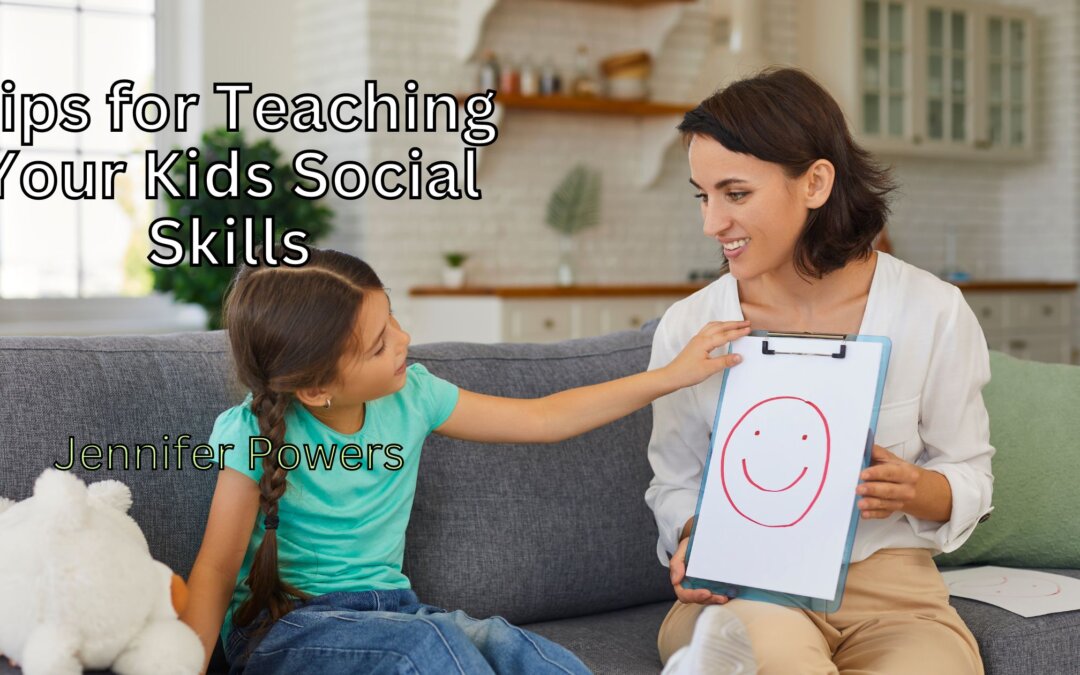Teaching social skills to kids is a fundamental aspect of their overall development, influencing their ability to form relationships, communicate effectively, and navigate social situations. Social skills are essential for personal interactions and success in various aspects of life, including school, extracurricular activities, and future careers. Here are some valuable tips for teaching your kids social skills:
Be a Role Model:
Children learn by observing adults’ behavior, especially their parents or caregivers. Demonstrate positive social skills in your interactions, such as active listening, Empathy, and respectful communication.
Encourage Play and Interaction:
Play is a natural and enjoyable way for kids to develop social skills. Encourage your children to engage in activities with peers, whether it’s through playdates, group activities, or organized sports.
Teach Empathy:
Help your children understand and recognize the feelings of others. Discuss emotions openly and encourage them to consider how others might feel in different situations. Empathy forms the foundation for positive social interactions, fostering kindness and understanding.
Practice Active Listening:
Teach your kids the importance of listening actively when others speak. Encourage them to make eye contact, acknowledge, and respond appropriately. Active listening enhances communication skills and demonstrates respect for others’ perspectives.
Role-Playing:
Use role-playing scenarios to help children practice social skills in a controlled environment. Create situations where they can practice introducing themselves, resolving conflicts, or expressing their feelings.
Establish Clear Expectations:
Set clear expectations for behavior in different social settings. Discuss appropriate behavior at home, school, and public places. Understanding expectations helps children feel more confident and comfortable in social situations.
Teach Problem-Solving:
Equip your kids with problem-solving skills to navigate conflicts and challenges. Teach them to express their needs, listen to others’ perspectives, and find solutions collaboratively.
Foster Independence:
Encourage your children to take initiative and make decisions independently. Independence builds confidence and a sense of responsibility, which contribute to improved social skills. Allow them opportunities to express their preferences and make choices within appropriate boundaries.
Provide Constructive Feedback:
Offer constructive feedback on your children’s social interactions. Highlight positive behaviors and gently address areas for improvement. Use specific examples to help them understand the impact of their actions on others and how they can enhance their social skills.
Be Patient and Supportive:
Building social skills is a gradual process, and children may face challenges. Be patient, supportive, and understanding. Celebrate their successes, no matter how small, and encourage them when they encounter difficulties.
Encourage Eye Contact and Body Language Awareness:
Teach the importance of eye contact and body language in effective communication. Encourage your children to make eye contact during conversations, stand or sit with good posture, and be aware of nonverbal cues.
Teaching social skills to kids is an ongoing process involving modeling, encouragement, and hands-on practice. By incorporating these tips into your parenting approach, you can help your children develop the social skills they need to thrive in various social settings, foster positive relationships, and navigate the complexities of interpersonal communication.
